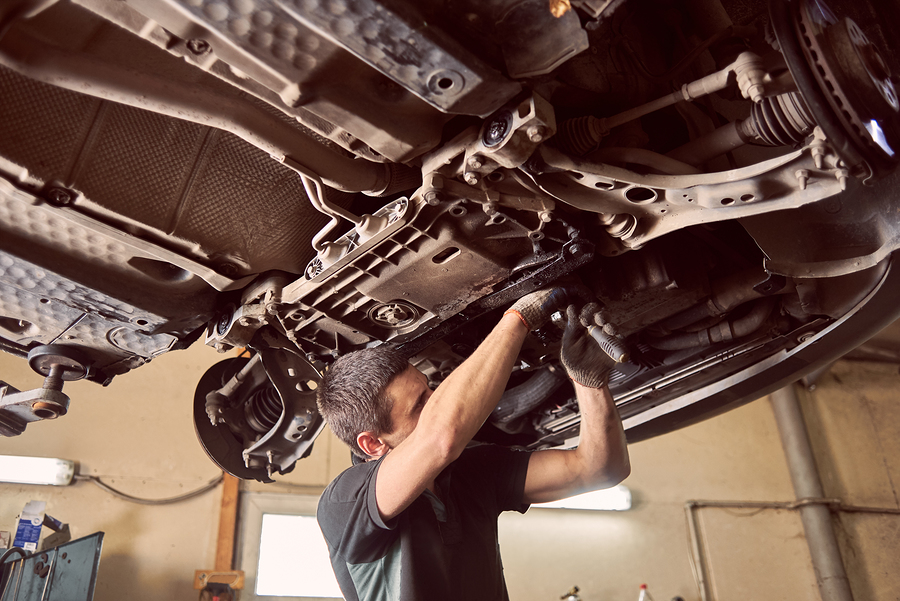
Here is what we know…
Your transmission is one of the most crucial components of your vehicle. It’s responsible for transferring power from the engine to the wheels, ensuring smooth operation and efficiency. When something goes wrong, many drivers immediately assume they need a full transmission replacement—but that’s not always the case.
At Luis Transmissions, we’ve seen countless transmission issues that don’t require a full rebuild or replacement. In many cases, repairs can get your transmission running smoothly again at a fraction of the cost. The key is diagnosing the problem correctly and addressing it before it leads to bigger issues.
When Can a Transmission Be Repaired Instead of Replaced?
Not all transmission problems mean the entire unit is failing. Some issues can be resolved with targeted repairs, fluid changes, or component replacements. Here are some common situations where a transmission can be fixed without a full replacement:
1. Low or Contaminated Transmission Fluid
Transmission fluid is essential for lubricating and cooling the transmission. If your fluid is low, dirty, or burned, it can cause slipping, rough shifting, and overheating. In many cases, a fluid change or flush can resolve the issue.
🔹 Signs of bad transmission fluid:
- Delayed or hard shifting
- Slipping gears
- Overheating or burning smell
- Unusual noises like whining or grinding
If caught early, simply draining and replacing the fluid can restore performance. However, if the fluid has been neglected for too long, it could indicate internal damage.
2. Worn or Failing Solenoids
Transmission solenoids control the flow of fluid inside the system. When they malfunction, you might experience shifting problems, slipping gears, or even getting stuck in one gear.
🔹 Can it be fixed? Yes. A faulty solenoid can often be replaced without removing the transmission. This is a much cheaper alternative to a full rebuild.
3. A Failing Torque Converter
The torque converter connects the engine to the transmission and allows for smooth gear changes. If it’s failing, you may notice shuddering, high RPMs, or stalling when coming to a stop.
🔹 Can it be fixed? Yes. A damaged torque converter can often be replaced separately without replacing the whole transmission.
4. A Faulty Valve Body
The valve body is responsible for directing hydraulic fluid to engage different gears. If it fails, you may experience erratic shifting, slipping, or even complete transmission failure.
🔹 Can it be fixed? Yes. Replacing or rebuilding the valve body is a targeted repair that doesn’t require replacing the full transmission.
5. Clutch or Band Adjustments (Automatic & Manual Transmissions)
In manual transmissions, the clutch is responsible for engaging and disengaging gears. Over time, the clutch can wear out, leading to slipping or difficulty shifting.
In automatic transmissions, bands are used to engage gears. If these bands become loose or worn, they can cause slipping or harsh shifts.
🔹 Can it be fixed? Yes. Clutches can be replaced, and bands can sometimes be adjusted or replaced without rebuilding the whole transmission.
When Is a Transmission Replacement Necessary?
While many transmission issues can be repaired, there are times when replacement is the only realistic option. If internal components like gears, bearings, or the planetary gear set are heavily damaged, a full rebuild or replacement may be necessary.
Here are signs that indicate a replacement might be unavoidable:
✅ Severe Internal Damage – If metal shavings are found in the fluid, it often means major internal components are failing.
✅ Burned or Blackened Fluid – While fluid changes help in some cases, severely burned fluid often means internal overheating and damage.
✅ Multiple Component Failures – If multiple parts (valve body, torque converter, solenoids) are failing, a rebuild or replacement may be more cost-effective than individual repairs.
✅ High Mileage with Repeated Issues – If your transmission has over 150,000 miles and keeps having problems, replacing it may be a better long-term solution.
How to Prevent Major Transmission Problems
At Luis Transmissions, we always emphasize prevention. Regular maintenance can help you avoid costly repairs or replacements. Here are some key tips:
🔧 Check Your Transmission Fluid Regularly – Low or dirty fluid is one of the biggest causes of transmission failure. Make sure it’s at the correct level and free of debris.
🔧 Service Your Transmission at Recommended Intervals – Many vehicles need a fluid change every 30,000 to 60,000 miles. Skipping this can lead to premature wear.
🔧 Address Small Problems Early – If you notice slipping, rough shifting, or delayed engagement, get it checked before it turns into a major repair.
🔧 Don’t Overheat Your Transmission – Towing heavy loads, aggressive driving, or low fluid levels can cause overheating, which damages internal components.
Get Expert Transmission Repair at Luis Transmissions
If your transmission is acting up, don’t assume the worst. Many transmission problems can be fixed without a full replacement, saving you thousands of dollars.
At Luis Transmissions, we specialize in diagnosing and repairing transmissions to get you back on the road quickly and affordably. Whether it’s a fluid change, solenoid replacement, or clutch repair, we’ll find the best solution for your vehicle.
📞 Call us today at 214-650-4781 or stop by our shop in Dallas, TX, for a free diagnostic. Let’s keep your transmission running strong!